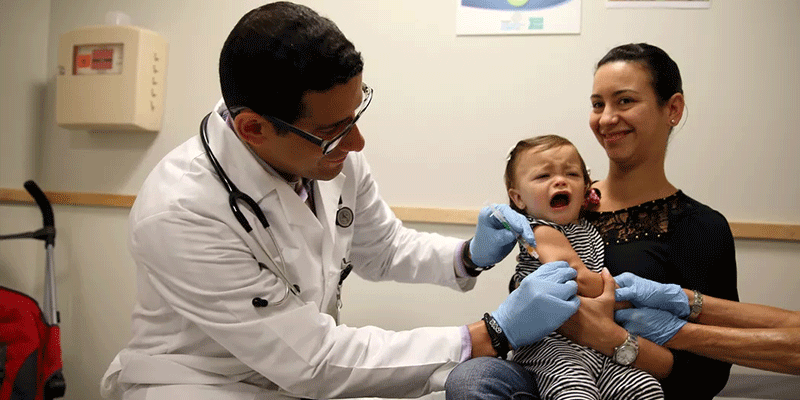
Who “covers“ the practice when your pediatrician is unavailable?
If your physician is in a group practice, it’s wise to meet the other doctors, since they may treat your child in your pediatrician’s absence. If your pediatrician practices alone, she probably will have an arrangement for coverage with other doctors in the community. Usually your pediatrician’s answering service will refer you to the doctor on call automatically, but it’s still a good idea to ask for the names and phone numbers of all the doctors who take these calls—just in case you have trouble getting through to your own physician.
If your child is seen by another doctor at night or on the weekend, you should check in by phone with your own pediatrician the next morning (or first thing Monday, after the weekend). Your doctor probably will already know what has taken place, but this phone call will give you a chance to bring her up to date and reassure you that everything is being handled as she would recommend.
How often will the pediatrician see your baby for checkups and immunizations?
The American Academy of Pediatrics recommends a checkup within forty-eight to seventy-two hours after your newborn is discharged from the hospital. This is especially important in breastfed babies to evaluate feeding, weight gain, and any yellow discoloration of skin (jaundice). Your pediatrician may adjust this feeding schedule, particularly in the first weeks of life, depending on how your newborn is doing.
During your baby’s first year of life, additional visits to your doctor’s office should take place at about two to four weeks of age, and then at two, four, six, nine, and twelve months of age as well. During your baby’s second year of life, she should be seen by your pediatrician at ages fifteen, eighteen, and twenty-four months, followed by annual visits from two to five years of age. If the doctor routinely schedules examinations more or less frequently than the Academy’s guidelines, discuss the differences with her. Additional appointments can be scheduled any time that you have a concern or if your child is ill.
What are the costs of care?
Your pediatrician should have a standard fee structure for hospital and office visits as well as after- hours visits and home visits (if she makes them). Find out if the charges for routine visits include immunizations. Be sure to familiarize yourself with the scope of your insurance coverage before you actually need services.
After these interviews, ask yourself if you are comfortable with the pediatrician’s philosophy, policies, and practice. You must feel that you can trust her and that your questions will be answered and your concerns handled compassionately. You also should feel comfortable with the staff and the general atmosphere of the office.
Once your baby arrives, the most important test of the pediatrician you have selected is how she cares for your child and responds to your concerns. If you are unhappy with any aspect of the treatment you and your child are receiving, you should talk to the pediatrician directly about the problem. If the response does not address your concerns, or if the problem simply cannot be resolved, seek out another physician.
Last Updated 11/12/2009
Source Caring for Your Baby and Young Child: Birth to Age 5 (Copyright © 2009 American Academy of Pediatrics)
The information contained on this Web site should not be used as a substitute for the medical care and advice of your pediatrician. There may be variations in treatment that your pediatrician may recommend based on individual facts and circumstances.






